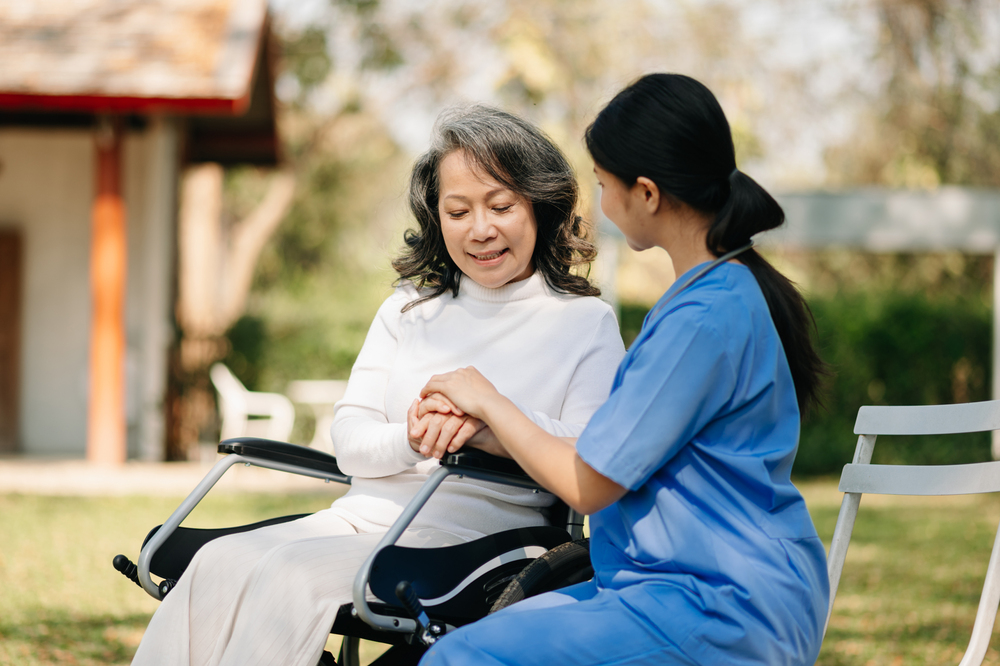Introduction
As the senior population grows, more families are turning to home care services to ensure their loved ones receive the best possible care. Nurses play an essential role in senior home care, offering medical expertise, emotional support, and assistance with daily living activities. Their presence ensures seniors can maintain independence and receive personalized care within the comfort of their homes. This article explores the many ways nurses contribute to home care, using real-life scenarios to illustrate their vital role.
Case Study: A Day in the Life of a Senior Home Care Nurse
Meet Sarah, a dedicated home care nurse.
Morning: Health Assessments and Medication Management
Sarah begins her day visiting Mr. Thompson, an 82-year-old retired teacher with diabetes and hypertension. She checks his vital signs, monitors his blood sugar levels, and ensures he takes his prescribed medications. She also educates him on proper nutrition and exercise to keep his condition under control. With her guidance, he maintains a stable condition, avoiding hospital visits. Sarah records his progress in her notes, which will be shared with his physician at the next check-up.
Midday: Assisting with Daily Activities
Her next stop is Mrs. Lewis, a senior recovering from hip surgery. Sarah helps her with mobility exercises, personal hygiene, and meal preparation. She encourages Mrs. Lewis to take small steps towards regaining her independence by performing exercises tailored to her condition. By assisting her in these activities, Sarah not only ensures her safety but also boosts her confidence in performing tasks on her own. She arranges follow-up physical therapy sessions and ensures that Mrs. Lewis’s home is set up for optimal mobility, reducing the risk of falls.
Afternoon: Emotional Support and Family Education
Later, Sarah visits Mr. and Mrs. Garcia, an elderly couple facing cognitive decline. She provides memory-stimulating activities and offers emotional reassurance, helping them stay engaged and mentally active. Sarah also supports their family by providing caregiving tips and resources to help them better understand dementia care. Before leaving, she educates their family on recognizing early warning signs of worsening cognitive conditions and advises them on when to seek additional medical support. The family expresses gratitude for her guidance, as they feel more prepared to care for their loved ones.
Expanding the Role of Nurses in Senior Home Care
Beyond direct patient care, home care nurses contribute significantly in several additional ways:
1. Preventive Care and Chronic Disease Management
- Educating seniors and caregivers on managing chronic illnesses such as diabetes, heart disease, and respiratory conditions.
- Encouraging lifestyle changes such as healthy eating, exercise, and medication adherence to prevent complications.
- Monitoring health conditions closely to detect potential problems before they become severe.
2. Palliative and End-of-Life Care
- Providing pain management and symptom relief for seniors facing terminal illnesses.
- Supporting families emotionally and ensuring seniors experience comfort and dignity in their final days.
- Coordinating with hospice teams and medical professionals to create a compassionate care plan.
3. Mental and Emotional Well-Being
- Addressing anxiety, depression, and social isolation among seniors.
- Offering companionship and meaningful interactions to enhance mental health.
- Coordinating with therapists and counselors when necessary.
4. Care Coordination and Advocacy
- Acting as liaisons between seniors, their families, and healthcare providers to ensure smooth communication.
- Assisting with transitions from hospital to home or from home to assisted living when necessary.
- Helping families navigate insurance policies and access home care resources.
The Lasting Impact of Home Care Nurses
- Improved Health Outcomes: Seniors receiving professional home care often have fewer hospital visits and better-managed health conditions.
- Enhanced Quality of Life: Personalized care tailored to the needs of each senior promotes overall well-being.
- Reduced Caregiver Burden: Family members benefit from professional guidance and relief from full-time caregiving responsibilities.
- Increased Independence: Home care allows seniors to maintain control over their lives while receiving necessary support.
Conclusion
Home care nurses like Sarah are invaluable in enhancing seniors’ quality of life. Through their expertise, compassion, and dedication, they help older adults age with dignity and independence. Their role extends beyond medical care—they provide emotional support, preventive care, and education to families, ensuring that seniors receive the best possible care at home. As the demand for senior home care grows, the role of nurses will continue to be instrumental in bridging the gap between healthcare and daily living, allowing seniors to thrive in a safe and familiar environment.

